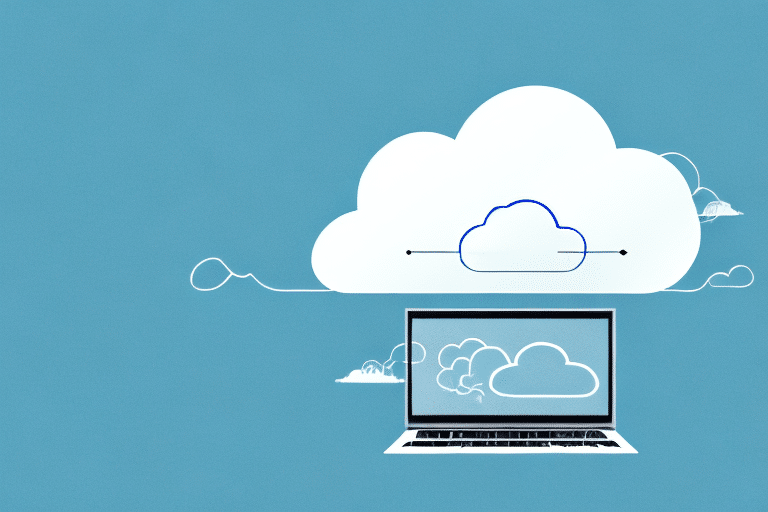Unlocking the full potential of big data requires more than just powerful tools and infrastructure. It demands a robust framework for managing, governing, and safeguarding data at every step of its lifecycle. That’s where data governance comes into play—a strategic approach to ensure that your organization’s valuable information is accurate, secure, and utilized effectively.
In this blog post, we’ll delve into the world of big data on Google Cloud Platform (GCP) and explore the importance of implementing a solid data governance framework. From ensuring data quality to maintaining security and privacy, we’ll examine key aspects that will help you harness the true power of your big data initiatives on GCP. So fasten your seatbelts as we embark on this exciting journey towards effective data management in the realm of GCP!
Data Governance
Data Governance is the bedrock of any successful data management strategy, and it becomes even more critical when dealing with big data on GCP. At its core, Data Governance involves establishing policies, processes, and frameworks to ensure that data is reliable, accessible, and protected.
One of the primary goals of Data Governance is to maintain data quality. This entails defining standards for data accuracy, completeness, consistency, and timeliness. By enforcing these standards across your big data ecosystem on GCP, you can trust the insights derived from your analyses to make informed business decisions.
Another crucial aspect of Data Governance is security and privacy. With vast amounts of sensitive information flowing through your big data pipelines on GCP, it’s essential to have robust measures in place to protect against unauthorized access or breaches. Implementing authentication protocols and encryption techniques helps safeguard your valuable assets from potential threats.
Operational monitoring and analytics are also vital components of a comprehensive Data Governance framework for Big Data on GCP. Monitoring tools enable real-time visibility into the performance and health of your big data infrastructure while analytical capabilities allow you to derive meaningful insights from operational metrics.
Implementing an effective Data Governance framework for managing big data on GCP ensures that you can maximize the value of your information assets while mitigating risks associated with poor quality or compromised security. So buckle up as we dive deeper into specific aspects within this framework that will pave the way towards optimized utilization of Big Data on Google Cloud Platform!
Big Data on GCP: Unleashing the Power of Data
In today’s digital landscape, data is often hailed as the new oil – a valuable resource that can drive innovation and fuel growth. And with the rise of Big Data, this resource has become more abundant than ever before. But how do we make sense of all this data? How do we harness its potential to gain meaningful insights?
Enter Google Cloud Platform (GCP), a powerful suite of cloud computing services offered by none other than tech giant Google. With GCP, businesses can store, process, and analyze enormous amounts of data at scale. From real-time analytics to machine learning algorithms, GCP provides an array of tools designed specifically for handling Big Data.
One key advantage of using GCP for Big Data is its ability to seamlessly integrate with existing infrastructure. Whether it’s ingesting data from various sources or running complex analytics pipelines, GCP offers robust solutions that simplify the entire process.
What additional services does it provides?
Data storage is another area where GCP shines. With offerings like Google Cloud Storage and BigQuery, organizations can securely store vast volumes of structured and unstructured data in a cost-effective manner.
But it doesn’t stop there – GCP also provides advanced capabilities for processing and analyzing Big Data. Tools like Dataproc and Dataflow allow businesses to run powerful computations on massive datasets while leveraging the scalability and flexibility provided by cloud computing.
As with any endeavor involving large amounts of data, ensuring proper governance becomes paramount when working with Big Data on GCP. From maintaining data quality standards to addressing security concerns and adhering to privacy regulations, having a solid framework in place allows organizations to effectively manage their data assets.
To achieve effective governance over their Big Data initiatives on GPC many organizations adopt established frameworks such as DAMA-DMBOK (Data Management Body Of Knowledge) or COBIT (Control Objectives for Information Technologies). These frameworks provide guidelines and best practices that help organizations structure their data management efforts and ensure compliance with industry regulations.
Overview of Data Management Frameworks
Data Management Frameworks play a crucial role in the effective governance of data within organizations. These frameworks provide a structured approach to managing, organizing, and protecting data assets. With the advent of Big Data on GCP (Google Cloud Platform), it has become even more important for businesses to adopt robust data management frameworks.
One popular framework is Apache Hadoop, which provides an open-source software ecosystem for distributed storage and processing of large datasets. It allows organizations to store and analyze massive amounts of structured and unstructured data efficiently.
Another widely used framework is Apache Kafka, which enables real-time streaming of data across different systems in a scalable manner. It acts as a centralized platform for collecting, storing, and distributing streams of records in real-time.
Furthermore, Google Cloud Pub/Sub offers a managed messaging service that enables reliable delivery of messages between independent applications at scale. This allows organizations to decouple their services and create event-driven architectures.
Additionally, tools like Google BigQuery provide powerful analytics capabilities for processing large datasets quickly. It allows users to run SQL queries on petabytes of data without the need for infrastructure provisioning or maintenance.
These are just a few examples highlighting the diverse range of data management frameworks available for handling Big Data on GCP. Each framework comes with its own set of features and benefits tailored to specific use cases. By leveraging these frameworks effectively, organizations can ensure efficient storage, analysis, and utilization of their valuable data assets while maintaining high levels of security and privacy compliance
Data Quality Management
Data Quality Management plays a crucial role in ensuring that the data used in Big Data projects on GCP is accurate, reliable, and consistent. With the massive amount of data being generated and processed, maintaining high data quality becomes even more challenging.
One aspect of Data Quality Management is cleansing the data to remove any errors or inconsistencies. This involves identifying and correcting inaccuracies, duplicate records, missing values, and outliers. By cleaning the data before analysis, organizations can prevent misleading insights or erroneous conclusions.
Another important aspect is validating the data against predefined rules or standards. This helps ensure that the data meets specific criteria for accuracy, completeness, consistency, and timeliness. By implementing validation processes within their Data Governance Frameworks on GCP, organizations can maintain high-quality standards throughout their big data operations.
Data profiling is also essential in assessing the quality of incoming datasets. It involves analyzing various characteristics such as uniqueness, integrity constraints violations, distribution patterns to identify potential issues early on. By proactively addressing these challenges through proper profiling techniques like statistical analysis or pattern recognition algorithms offered by GCP tools like Cloud Dataprep or Cloud DLP API you can improve your overall big-data experience
Security and Privacy
Security and privacy are crucial aspects of any data governance framework, especially when dealing with big data. With the vast amount of data being collected and processed on GCP, it is important to ensure that proper measures are in place to protect sensitive information from unauthorized access or breaches.
One key element of security in a data governance framework is authentication and authorization. This involves implementing strong user authentication mechanisms, such as multi-factor authentication, to verify the identity of users accessing the data. Additionally, role-based access control can be employed to limit user permissions based on their roles and responsibilities within the organization.
Encryption plays a vital role in protecting data both at rest and in transit. It ensures that even if an unauthorized individual gains access to the data, they will not be able to decipher its contents without the encryption key. GCP provides robust encryption capabilities for storing and transferring sensitive information securely.
Regular monitoring and auditing are essential for maintaining security and privacy standards. By continuously monitoring activity logs and conducting regular audits, organizations can identify any suspicious behavior or potential vulnerabilities that need immediate attention.
Compliance with regulatory requirements is another aspect of ensuring security and privacy in a big data environment. Organizations must adhere to industry-specific regulations like GDPR or HIPAA by implementing appropriate controls, policies, and procedures.
Effective security measures combined with stringent privacy practices form the foundation for a robust data governance framework for big data on GCP. By prioritizing these aspects throughout every stage of handling big data – from collection to storage – organizations can safeguard valuable information while minimizing risks associated with unauthorized access or breaches.
Operational Monitoring and Analytics
Operational Monitoring and Analytics play a crucial role in ensuring the smooth functioning of data governance frameworks for big data on GCP. With the vast amount of data being processed, monitored, and analyzed, it is necessary to have robust tools and systems in place.
One key aspect of operational monitoring is real-time monitoring. This involves keeping an eye on the performance metrics of various components within the data infrastructure. By continuously tracking metrics such as CPU utilization, memory usage, network traffic, and disk I/O, organizations can identify bottlenecks or issues that may impact system performance.
Analytics comes into play when interpreting this wealth of operational data. By analyzing trends and patterns over time, organizations can gain insights into their system’s behavior and make informed decisions regarding optimization or resource allocation.
Another critical aspect is proactive alerting. By setting up alerts based on predefined thresholds or anomalies detected in the operational metrics, organizations can be notified promptly about any potential issues that require attention.
Moreover, advanced analytics techniques like anomaly detection help identify unusual behaviors or events. It may indicate security breaches or other abnormalities within the system.
Conclusion
In today’s data-driven world, effective data governance is crucial for organizations to harness the full potential of big data. With Google Cloud Platform (GCP), businesses can leverage powerful tools and services to manage their data effectively.
By implementing a robust data governance framework, companies can ensure that their big data on GCP remains secure, private, and of high quality. This not only helps in complying with regulatory requirements but also enables better decision-making and insights.
Data Quality Management plays a vital role in maintaining accurate and reliable information. By implementing processes such as data cleansing, validation, and enrichment, organizations can improve the overall quality of their big data on GCP.
Security and Privacy are paramount considerations when dealing with large volumes of sensitive information. GCP provides advanced security features like encryption at rest and in transit, access controls, audit logs, and compliance certifications that help safeguard valuable business assets.
Operational Monitoring and Analytics enable organizations to gain real-time insights into their big data infrastructure on GCP. By using monitoring tools like Stackdriver or custom dashboards built on BigQuery or Data Studio, businesses can proactively identify issues or anomalies in their systems.





